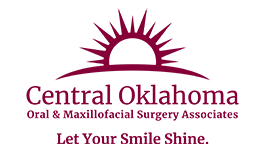16 Dec How long do facial injuries take to heal?
Facial trauma can result in serious injuries, ranging from cuts and lacerations to broken bones. The length of the healing process will depend on the nature and severity of the patient’s injuries, along with other factors, such as the patient’s age and overall health.
In order to minimize the risk of complications in the healing process, patients should seek treatment as soon as possible after experiencing facial trauma and pursue all follow-up care as directed.
Consulting with an oral surgeon to repair any damage caused by facial injuries can help to restore your appearance and lead to an uneventful healing process.
Seeking Treatment For Facial Injuries
Facial trauma can result in injuries that are anywhere from mild to severe, and your first step will be determined by the degree of your injury. In some cases, such as those involving severe pain or bleeding, an obvious fracture or a deep laceration to the face, it will be clear that you need to head directly to the nearest emergency room.
Consulting with an oral surgeon to repair any damage caused by facial injuries can help to restore your appearance and lead to an uneventful healing process.
If you go to the ER, the physicians there will manage the acute phase of the injury and refer you to an oral surgeon for ongoing care and follow-up. It’s important to follow through and call our office to schedule an appointment, as you may need additional procedures to address the issue.
Milder injuries can be treated in our office. We do have some scheduling flexibility to accommodate same-day appointments, so give us a call if you feel that your situation doesn’t warrant a trip to the ER.
Reducing Risk of Facial Trauma
Here are a few ways to reduce your risk of facial trauma:
- Wear your seatbelt every time you are in the car, and never drive while under the influence of drugs or alcohol.
- Keep your living space free of clutter that could be a tripping hazard, and secure throw rugs.
- Wear appropriate protective gear, ideally a custom-made mouthguard, when playing contact sports or engaging in activities such as skateboarding.
- Avoid physical confrontation.
Keep our office number handy should you experience facial trauma and need to schedule an initial or follow-up appointment with one of our providers.
